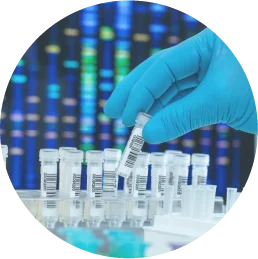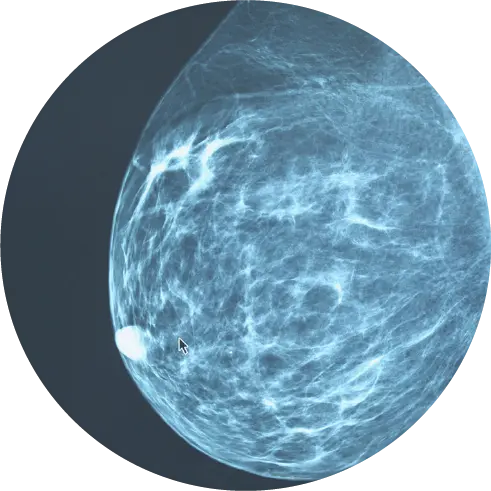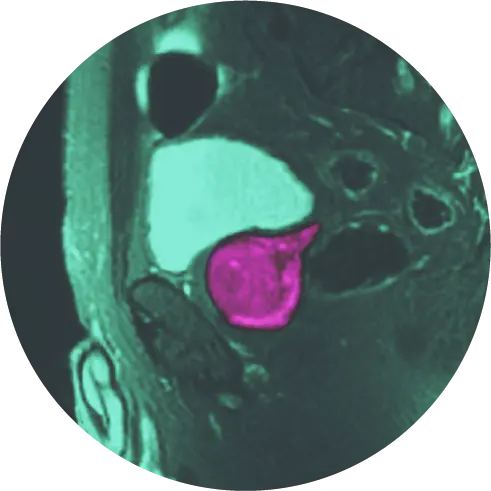Although there is no guaranteed way to prevent breast cancer, research shows that there are steps you can take to lower your risk of getting the disease. More importantly, you can be proactive and possibly find the cancer earlier when it is more easily treated. Here are some options you can take to manage your breast cancer risk.
Lifestyle Changes to Lower Your Risk of Breast Cancer
Limit alcohol consumption. Research shows that women who drink two or three servings of wine, beer, or liquor daily have a 20 percent higher risk of getting breast cancer than someone who does not drink.
Even small amounts of alcohol can increase your risk. The general recommendation from experts is to either not drink at all or limit yourself to no more than one small alcoholic drink a day.1
Maintain a healthy weight. Excess body weight and weight gain have been linked with a higher risk of breast cancer, especially after menopause. The American Cancer Society recommends that women balance nutritious meals with physical activity. If you need to lose weight, talk with your doctor about healthy ways to reduce your caloric intake and increase the amount of exercise you get each day.2
Increase physical activity. In addition to maintaining a healthy weight, becoming more physically active is equally as important. Healthy adults should aim for at least 150 minutes of moderate aerobic exercise or 75 minutes of vigorous aerobic exercise each week. Combining the two levels of activity is a good idea.3
Eat healthy foods. The link between diet and breast cancer is under scrutiny. Some studies have shown that women who eat a Mediterranean diet, which emphasizes fruits, vegetables, whole grains, legumes, nuts, olive oil, and fish, may have a reduced risk of breast cancer.4,5
Limit hormone therapy. Hormone replacement therapy (HRT) and some hormonal forms of contraception have been linked to a slightly increased chance of getting breast cancer. Since these medications also provide health benefits, talk with your doctor about the risks and the benefits of using hormone replacement therapy.6
Consider Breastfeeding your baby. Women who breastfeed may gain some protection against breast cancer. Research reveals that breastfeeding mothers lower their risk of pre- and post-menopausal breast cancer. And the longer the mother nurses her baby, the greater the protection.7
Become familiar with your breasts. Practice monthly self-exams and become vigilant about any changes you notice in your breasts, such as a new lump, dimpling, discoloration or a difference in the skin. Some 40 percent of diagnosed breast cancers are detected by women who feel a lump during a self-exam.8
Don’t smoke. The use of tobacco is associated with an increased risk of breast cancer, especially in women who haven’t gone through menopause. Factors that affect your risk include how often you smoke and the age you started smoking. Research indicates that women who currently smoke and who have been smoking for more than 10 years may have a 10 percent higher risk of breast cancer than women who have never smoked.9
Finding Breast Cancer Early When it is More Easily Treated
Follow recommended mammogram schedule. Talk with your healthcare provider about when to begin mammograms based on your personal and family history. The general recommendations for healthy women are as follows:
- Women should begin annual screening mammograms at age 40 and consider screening earlier if they have a family history.
- Screenings should continue as long as a woman is in good health and expects to live 10 or more years.10
What if I Have an Increased Risk of Getting Breast Cancer?
Some women are at increased risk of getting breast cancer due to factors beyond their control, such as a strong family history or having a family member with a gene mutation. In addition to the steps listed above, women with a higher risk of getting breast cancer should consider the following options.
Increase your screening tests. If your physician has determined you are at high-risk for breast cancer, they may recommend you receive breast cancer screening at an earlier age, more frequently and/or with more advanced imaging technology. The American Cancer Society published screening recommendations for women at high risk. When women meet the criteria, they recommend a breast MRI and a mammogram every year, typically starting at age 30.11
Consider genetic counseling and testing. If you have reason to think your family history puts you at a greater risk for breast cancer, you may want to consider genetic counseling. Genetic counselors can help you make informed decisions about testing for the BRCA1 and BRCA2 genes and other inherited mutations.12
Talk with your doctor about medicines to lower your risk. If you are known to be at an increased risk of developing breast cancer, talk with your doctor about prescription medications such as raloxifene and tamoxifen. These drugs block the action of estrogen in breast tissue. Other medications, called aromatase inhibitors, might be an option for post-menopausal women. It is best to talk to your doctor about the benefits and risks of these medications so you can make an informed decision about their use.13
Schedule more frequent doctor visits and tests. Another step to take if you are at a heightened risk for breast cancer is to see your doctor for a clinical breast exam more often, perhaps as often as every 6 to 12 months. You also may want to start your breast cancer screenings at a younger age and talk with your doctor about adding a Breast MRI to your screening schedule. The goal of this approach is not to lower your risk but to help find any signs of cancer early when it is most treatable.14
HALO is Here to Help
If you have additional questions about breast cancer screenings or would like to schedule an appointment, please give our experts at HALO DiagnosticsTM a call at 877-225-2831 or fill out the form below.
References
- https://www.cdc.gov/cancer/breast/basicinfo/prevention.htm
- https://www.cancer.org/cancer/breast-cancer/risk-and-prevention/can-i-lower-my-risk.html
- https://www.cdc.gov/cancer/breast/basic_info/prevention.htm
- https://www.mdpi.com/2072-6643/13/11/4064
- https://www.mayoclinic.org/healthy-lifestyle/womens-health/in-depth/breast-cancer-prevention/art-20044676
- https://www.breastcancer.org/risk/risk-factors/using-hormone-replacement-therapy
- https://www.wcrf.org/diet-activity-and-cancer/risk-factors/lactation-breastfeeding-and-cancer-risk/
- https://www.nationalbreastcancer.org/breast-self-exam
- https://www.komen.org/breast-cancer/facts-statistics/research-studies/topics/smoking-and-breast-cancer-risk
- https://www.cancer.org/healthy/find-cancer-early/american-cancer-society-guidelines-for-the-early-detection-of-cancer.html
- https://www.cancer.org/cancer/breast-cancer/screening-tests-and-early-detection/american-cancer-society-recommendations-for-the-early-detection-of-breast-cancer.html
- https://www.cdc.gov/genomics/disease/breast_ovarian_cancer/counseling.htm
- https://www.cancer.org/cancer/breast-cancer/risk-and-prevention/tamoxifen-and-raloxifene-for-breast-cancer-prevention.html
- https://www.komen.org/breast-cancer/screening/




